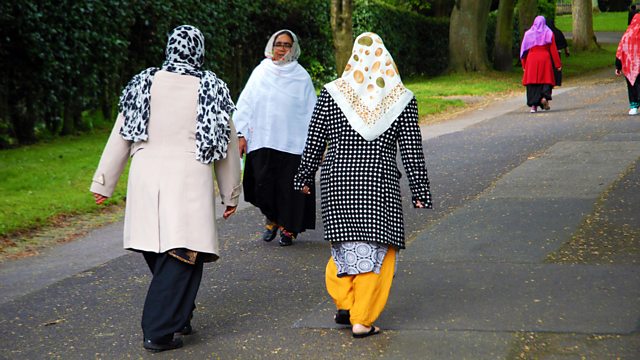Diabetes and mental illness in extended families
Winifred Robinson reports on one of the world's largest child health studies. Doctors prepare to release new findings on the health impact of high cousin marriage rates locally.
Born in Bradford is one of the biggest medical research studies undertaken in the UK: its aim is to find out more about the causes of illness by studying children as their lives unfold. Winifred Robinson has been alongside researchers from the start, in 2007, and has followed the recruitment of 14,000 babies and their families. They are now been tracked and Information gathered has already led to changes in how pregnant women in the city are monitored and their babies cared for.In this programme Winifred looks at research into the effect of the potentially toxic chemical, acrylamide - present in a range of foods, including crisps, coffee and chips. The diet of mothers to be in Bradford contributed to an international study of 1,100 pregnant women and newborns, led by the Centre for Research in Environmental Epidemiology in Spain. The babies in Bradford were found to have the highest levels of acrylamide, which can cause lower birth rates and smaller heads. These birth outcomes are linked to health problems in later life, including poor child health, delayed brain development, and diabetes and heart disease in adulthood.According to Professor John Wright, a clinical epidemiologist at the Bradford Institute for Health Research, the findings show how important it is to start educating pregnant women about the risks: "our study provides the most definitive scientific evidence yet that eating foods high in acrylamide during the critical pregnancy period can affect foetal health. The level found in the Bradford babies was twice the level of the Danish babies, for instance. Pregnant women need to be given more information about the risk from acrylamide and the food industry must also explore effective ways of reducing acrylamide levels in its products."The impetus for the Born in Bradford study came from the high infant mortality rate in the City - the second highest in the country at the launch of the study, according to the Bradford Infant Mortality Commission. In addition Bradford has a range of autosomal recessive conditions which aren't seen elsewhere - with more than 150 of them identified by paediatricians and community teams. In an effort to understand some of these extremely rare conditions researchers have been tracing the genetic history of new parents and looking at the part played by cousin marriages, which account for three quarters of marriages amongst Pakistanis in the city. The Born in Bradford team is now on the brink of providing the most detailed calculation of the actual risks involved in cousin marriage. One of the advantages of this work is that those in the position of having children with recessive conditions can be offered alternatives when they next consider getting pregnant. Ruba is 24 and has two children with I Cell disease, a rare and incurable metabolic disorder which has already claimed the life of her five year old son, Hassan and which will inevitably kill his younger sister, Alishba. Ruba is married to her cousin and has a one in four chance of any subsequent pregnancies resulting in children born with the same condition. Winifred follows Ruba as she considers her options and listens to the advice and guidance offered.
Last on
More episodes
Previous
Clip
-
![]()
The risks involved in cousin marriage
Duration: 02:29
Broadcast
- Fri 14 Jun 2013 11:00±«Óãtv Radio 4


